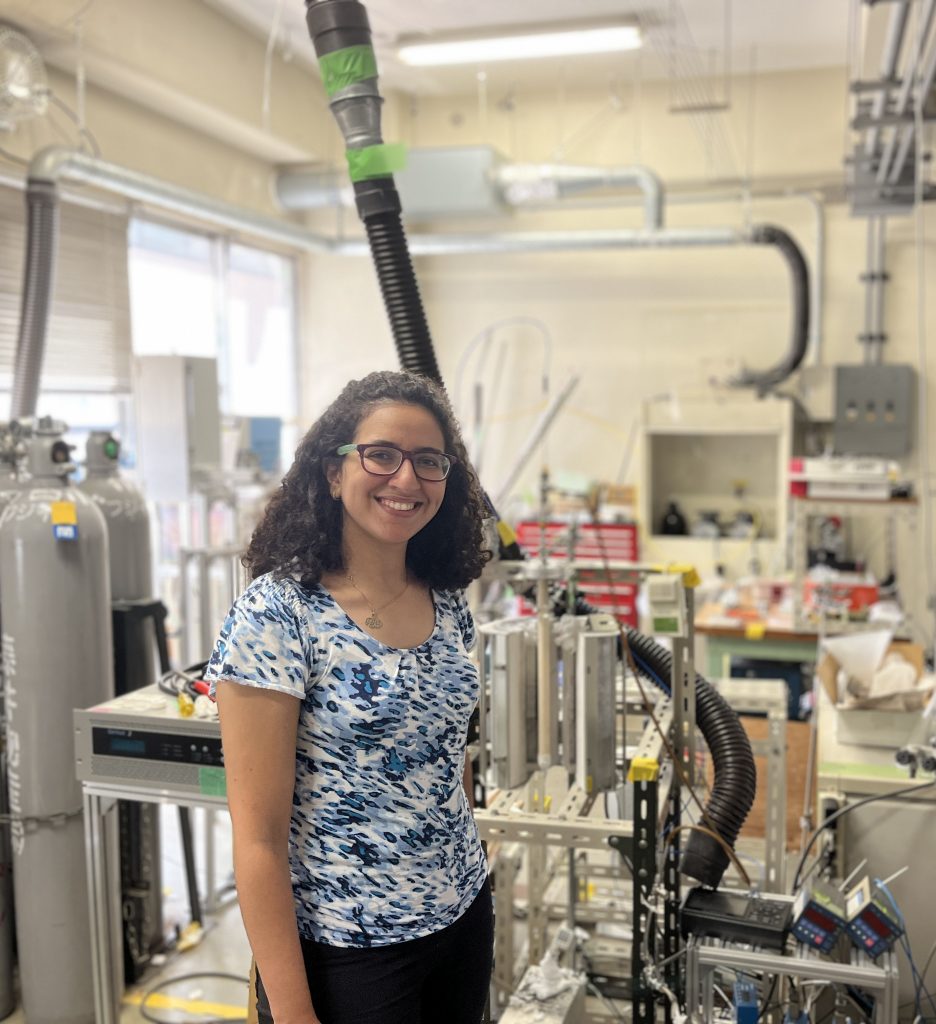As new graduate students at Tokyo Tech, many of us are experiencing research life for the first time. Are our expectations of day-to-day life met? What about the expectations of our own skills or interests? How do we cope with this new lifestyle? Let me share with you my experience of the switch from student life to researcher life.
Effort does not guarantee positive results
My major is chemical science and engineering. Research topics can vary across the different labs, but most involve experimental work. I had no previous experience with experimental research before coming to Tokyo Tech. My graduation project during my bachelor’s course was a design project. You have input, you do the math, and you get the output – straightforward with few surprises. That’s why it initially hit me hard that I needed to switch to a research mentality, where you put in the effort but do not necessarily get the results you were hoping for. I had to train my brain for this new situation. Once you accept it, things will be much better.
My experiment
My experiment takes 10 hours. Yes, 10 hours straight. As it involves methane flowing at around 1000°C, I need to be near my setup almost the whole time for safety reasons. That is a long time for a brain to function without breaks. Not to mention that I also cannot eat in the lab during my work. Luckily, for technical reasons, I cannot conduct experiments every day. On average, I can conduct two or three per week, and on the other days I am preparing for the experiments and analyzing the results. Therefore, I had to come up with a plan to survive this for as long as I am here.

My survival rules
1. Find the most suitable time frame for work:
I am a morning person. Hence, I start my experiment at 8 a.m. so that I can finish by 6 p.m. at the latest and then go for lunch/dinner. Also, as my research is somewhat dangerous, I prefer to work during times when I can easily get help in case of emergencies.
2. Find some fun activities during long experiment times:
A lot of the time during the 10 hours, I am basically waiting for something to happen. I wait for the reactor to reach the desired temperature and steady-state condition. I wait for the gas chromatograph to analyze the sample so that I can take the next one, etc. During this waiting time, you need to keep an eye on the setup, but you do not need to be looking at it all the time. You’ll get bored at some point. Therefore, make sure to find a hobby or something else you can do in the lab for fun. In my case, I have a sketchbook and I have also learned how to solve the Rubik’s cube.
3. Conserve your energy on other days:
If your lab is as flexible as mine and is more oriented toward effort than presence, then you’d better make sure that when you finish your work early on other days, you go home to give your body some rest and healing. In other words, be in the lab only when you need to be.
4. Weekends are sacred holidays:
The good thing about experimental work is that you can only do it on campus and, for most labs, only during weekdays for safety reasons. Therefore, it was easy for me to establish a rule to never do any research-related work during the weekends. This is very important for mental health as the weekend’s fun activities are the main reason you can start your next week of research feeling refreshed.
Set your own rules
I obviously did not have all these rules when I first started. I developed them over the years and found that this is what works best for me. These rules are very individual though and can vary from one person to the other. Find your own rules and your own way! Come with an open mind for a change of lifestyle and mentality. In the end, you will leave Tokyo Tech with a degree and a lifetime’s worth of experience.
